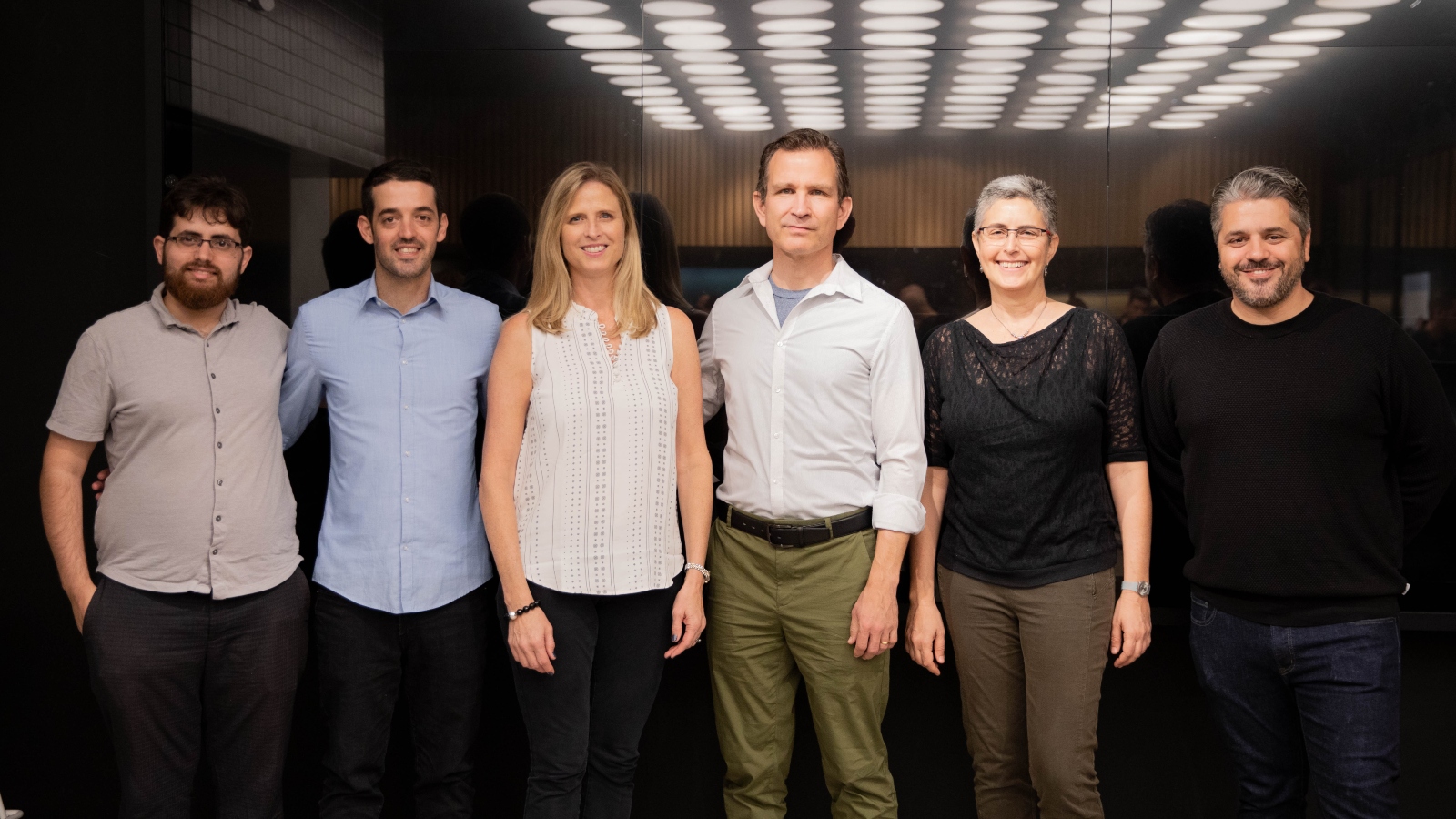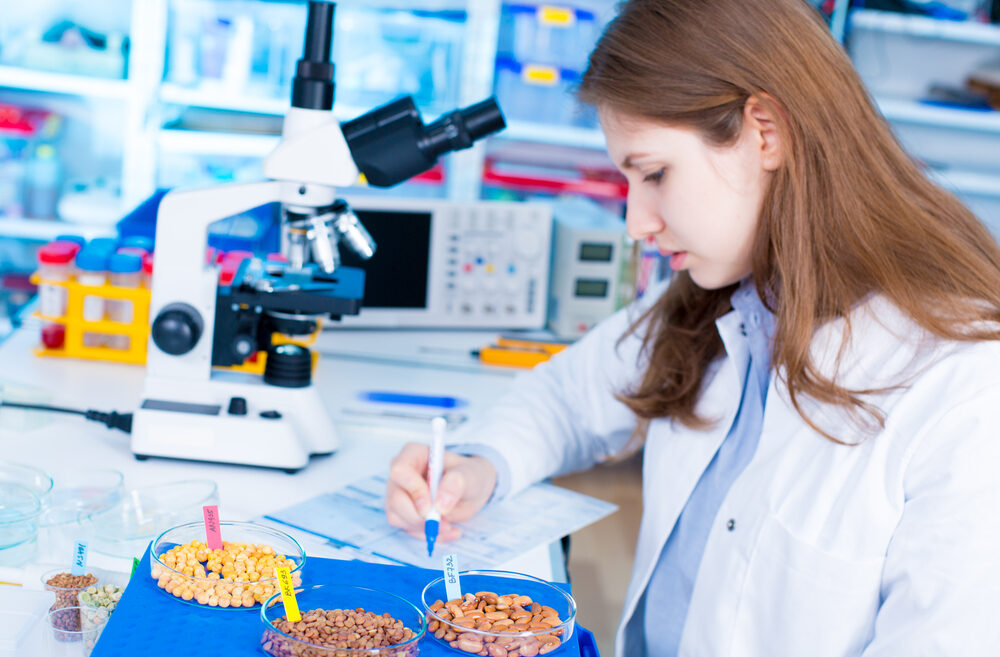The world’s central address for supporting research, development and commercialization of plant-based and cultivated meat protein alternatives is the Good Food Institute, founded in 2016.
The nonprofit’s branches in the United States, Asia Pacific, India, Europe and Brazil seek to bring sorely needed solutions to the largest populations.
So why has GFI has opened a branch office in little Israel?
“Obviously not because of the size of the market but to capture innovation from the academy and the startup nation,” explains Nir Goldstein, managing director of GFI Israel.
“Israel is now a global leader in alternative protein R&D. Its food-tech, ag-tech and biotech ecosystems are at the forefront of innovation worldwide and have been leading alternative protein research for a long time,” Goldstein tells ISRAEL21c.
GFI will offer free scientific, marketing and investment guidance to academic and research institutes and startups in these sectors, working closely with the Israel Innovation Authority and with corporate food-tech hubs The Kitchen in Ashdod and Fresh Start in Kiryat Shemona.
According to the Israel Innovation Authority, Israel has between 250 and 300 food-tech startups.
“We want to bring Israeli innovation in this field to transform the global food system,” Goldstein says.
Defining the need
GFI was born out of a pressing need for new food-production processes due to a cluster of factors, Goldstein explains.
A big factor is environment. Factory farming causes more pollution –about 15% of greenhouse gas emissions — than the entire transportation sector. Livestock require vast quantities of water (15 cubic tons per 1 kilogram of beef) and pasture (30% of arable land worldwide).
“Growing animals to eat parts of them is highly inefficient. In a world where we’ll have 10 billion people in 30 years, we need to use our resources more efficiently,” says Goldstein.
Another concern is health. Factory farming has contributed significantly to the phenomenon of human antibiotics resistance. According to GFI, 70% of all antibiotics are used as a growth supplement or for disease prevention or treatment in animals that people eat. The UN predicts that by 2050 antibiotic-resistant infections will surpass cancer as the leading cause of death.
“There’s also the issue of animal welfare,” says Goldstein. “More and more people are concerned about the way we raise and slaughter 150 billion animals annually for human consumption worldwide.”

Despite all these issues, meat consumption has never been higher. Moving the needle in the other direction requires alternatives that are affordable, nutritious and delicious – like the Beyond and Impossible plant-based alternatives Americans are snatching up in their favorite fast-food joints.
“We want the next Beyond Meat to come out of Israel,” says Goldstein.
“We are assisting four or five of Israel’s biggest food-tech and ag-tech companies in the process of bringing innovation in alternative protein. We can expect big news in the next year or so from this local industry.”
Cultivated meat
Another way to reduce reliance on animal slaughter will be to mass produce cultivated (“clean”) meat synthetically or from cells of live animals.
“Israel is a pioneer in that regard,” says Goldstein. “Four of the first eight cultivated meat startups in the world are Israeli.”
GFI has worked with two of them, Future Meat Technologies and Aleph Farms, since their beginnings.
In fact, GFI Israel’s senior scientist is Tom Ben Arye, who developed the technology behind Aleph Farms in the biomedical engineering lab of Prof. Shulamit Levenberg at the Technion-Israel Institute of Technology.
GFI Israel will assist existing and upcoming cultured meat startups, including SuperMeat and other still in earliest stages, with go-to-market strategies and approval processes, says Goldstein.
National food institute
With just six employees in Tel Aviv, GFI Israel is getting involved in all aspects of alternative protein R&D in Israel.
“In policy, we are working with the Ministry of Economy as consultants,” says Goldstein.
The group advised the ministry that its planned national food institute in northern Israel should include equipment for cutting-edge innovation in alternative protein.
“Unlike cyber or other programming technologies, you need very expensive machinery if you want to invent the next Beyond Meat. Unfortunately, there is no place in Israel now that allows access to such machinery,” says Goldstein.
In addition, GFI worldwide funds research in alternative protein, encouraging open access so that participants in similar projects at any institution can pool knowledge.
Two of the 15 researchers currently supported by GFI are Israeli: Prof. Marcelle Machluf, dean of the Faculty of Biotechnology and Food Engineering at the Technion, who’s working on a cultivated meat technology; and Tel Hai College food engineering researcher and lecturer Ofir Benjamin, who’s experimenting with using quinoa for a plant-based meat alternative.
“Some of the projects are beyond what you can imagine,” Goldstein tells ISRAEL21c.
Goldstein is teaching a course on food technology and innovation at Ben-Gurion University of the Negev.
Ben Arye is giving the world’s first course on producing alternative protein, at the Hebrew’s Faculty of Agriculture in Rehovot. He was a featured speaker at “The Plant-Based Professional: A Culinary Innovation Conference and Expo,” February 10 in Tel Aviv.
“What we are really aiming for is to educate the next generation of researchers,” says Goldstein.
“One thing that really helps us in our work, aside from being the startup nation, is the size of the Israeli community. Everyone knowns everyone and things happen very fast. People help each other, even competitors, to promote this field.”
















